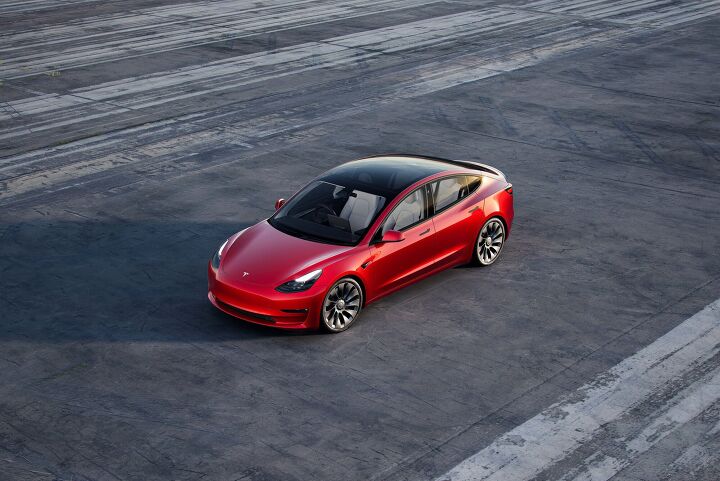
Lost a bit in the holiday rush here at TTAC was a new Reuters story about Tesla blaming the buyers of its cars for parts failures.
It’s a long, thoroughly investigated piece and I am still working through it. We didn’t cover it due to our small staff and the holiday blur — we almost certainly have hit it any other week. But from what I’ve seen so far, Tesla has a lot of explaining to do.
I could write a screed like this just about every week — it seems like we’re constantly hearing about Tesla or one of Elon Musk’s other companies cutting corners when it comes to safety, presumably in order to keep the stock price juiced. Indeed, the Reuters piece references safety problems at SpaceX.
In this case, Tesla is accused of blaming customers for abusing vehicles even though the company knew its parts had flaws.
In other words, the company is being accused with knowing that its parts were either poorly designed or defective, and instead of taking responsibility, it blamed customers and claimed the customers did the damage via “abuse.”
We at TTAC, myself especially, have been accused as Tesla and/or Musk haters. I can assure you I have no anti-Tesla or anti-Musk bias. That said, this kind of stuff makes my blood boil. I do have a bias against companies that ignore safety concerns and then try to blame their customers — putting the customers both at a safety risk and on the hook financially for expensive repairs that should be covered under warranty. I would say the same about Ford or GM or Toyota or Honda or Kia — had I been working here during the GM ignition switch recall, ho boy.
OK, preventative defense against accusations of bias aside, back to Tesla. Internal documents seem to show that the company knew about defects and kept both consumers and safety regulators in the dark.
It’s also worth noting here that Tesla, unlike other automakers, doesn’t use an independent dealer network to sell or service its cars. That matters because, in theory, Tesla would know about defects and warranty claims more quickly than other automakers. Having worked in the dealer world, admittedly over 15 years ago, I can say this is probably true. Legacy automakers do have representatives that check in with dealers and monitor claims to spot trends, to be clear, and these folks would likely notice company-wide problems pretty quickly, but it would presumably happen even faster if the service centers were owned and managed by the automaker.
It’s clear that assuming the Reuters report is accurate — and there is no reason to doubt it is — Tesla decided to blame customers for its failures. It did so for several reasons: To reduce warranty costs, to avoid having its stock price punished by investors over concerns about reliability, and so it could tout its cars as being worth buying.
If that’s the case, and it appears to be, the company should be punished harshly.
It’s not just a moral issue — it’s a safety issue. The company’s inability to take accountability and say, recall the cars with potential defects, puts its drivers and the other drivers around them at risk.
Not to say that Tesla is the ONLY automaker that has engaged in these kinds of shenanigans — I am sure that if I went back through history, I’d find plenty of examples of legacy automakers pulling stuff like this. This is why the National Highway Traffic Safety Administration (NHTSA) has the authority to force recalls, at least when safety is involved.
So I am not picking on Tesla just because the company is the new kid on the block or out of any animosity towards Musk. I am picking on Tesla because it appears that instead of doing the right thing and fixing its cars’ defects, at great cost both financially and to its reputation, it chose to blame its customers for its failures. That’s enraging and frightening.
If I had just bought a brand-new Tesla and the suspension fell off within the first 200 miles, and then Tesla tried to deny the warranty claim and said I “abused” the vehicle, I’d be livid. I’d be Sam Jackson scraping brains off the Chevy Malibu seats in Pulp Fiction — a mushroom-cloud laying mother bleeper.
In fact, I don’t even own a Tesla and I am getting proper mad. I am tired of companies skating away from their responsibilities towards their customers (and since Teslas are driven on public roads, the rest of us as well). Tesla needs to stop this behavior. It needs to be willing to pay warranty claims when defects are clearly its fault. It needs to fix its designs if parts are breaking and causing unsafe situations.
Take your medicine, Elon. Fix what’s wrong. And don’t blame others for your failings.
[Image: Tesla]
Become a TTAC insider. Get the latest news, features, TTAC takes, and everything else that gets to the truth about cars first by subscribing to our newsletter.

